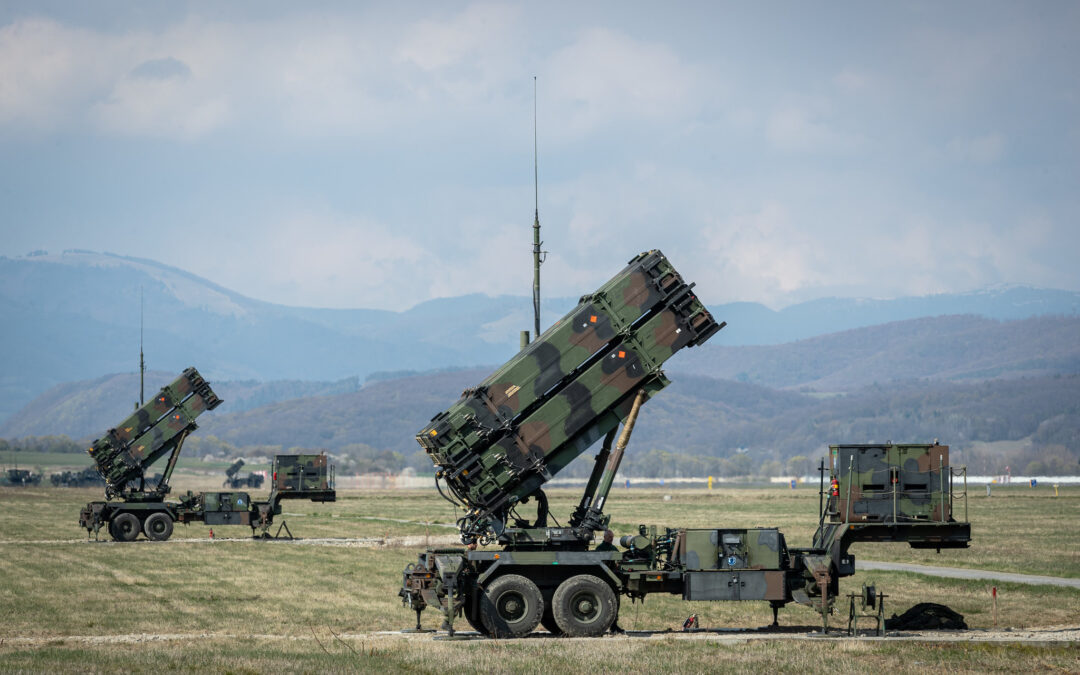Keep our news free from ads and paywalls by making a donation to support our work!

Notes from Poland is run by a small editorial team and is published by an independent, non-profit foundation that is funded through donations from our readers. We cannot do what we do without your support.
Germany will move Patriot missile units to Poland next year to support the defence of Polish airspace. The decision was announced on Thursday by German defence minister Boris Pistorius then confirmed by his Polish counterpart Władysław Kosiniak-Kamysz.
“Pursuant to a NATO decision, from January 2025 we will have further allied support for our air defence,” wrote Kosiniak-Kamysz on social media. “We welcome Germany’s decision to send a Patriot system battery to Poland.”
In an earlier post, the Polish defence minister said he had spoken with Pistorius and “personally thanked him for his commitment and support for the security of Poland and the eastern flank of NATO”.
Przed chwilą rozmawiałem z Ministrem Obrony 🇩🇪@BMVg_Bundeswehr Boris Pistorius i osobiście podziękowałem mu za jego zaangażowanie i wsparcie bezpieczeństwa Polski i wschodniej flanki #NATO. pic.twitter.com/CtWr3HjhZe
— Władysław Kosiniak-Kamysz (@KosiniakKamysz) November 28, 2024
That came after Pistorius had announced Germany would deploy a Patriot system to Poland to “protect a logistical hub in Poland that is of central importance for the delivery of material to Ukraine”.
Media reports indicate that this was a reference to the eastern Polish city of Rzeszów, which has become the main hub for equipment and people travelling in and out of Ukraine since Russia’s full-scale invasion.
“We will secure the supply of vehicles, weapons and ammunition that Ukraine urgently needs to defend itself against the brutal Russian attacks that violate international law,” said Pistorius. “Together with our Polish friends, we will also secure NATO airspace, as we did last year.”
Germany previously stationed Patriot units in Poland between January and November last year, along with 300 military personnel to operate them. They were located near the city of Zamość, around 50 kilometres (31 miles) from the border with Ukraine.
In its statement on Thursday, the German defence ministry said that it was “currently coordinating the exact details of the [upcoming] relocation with Poland, other allies and with NATO in Brussels”.
But it confirmed that “the deployment of German troops in Poland is possible from January 2025” and would last “up to six months”. The German air force later wrote that it is preparing to relocate “two fire units” to Poland.
Unser Flugabwehrraketengeschwader 1 bereitet sich aktuell auf eine mögliche Verlegung nach 🇵🇱 mit 2 Feuereinheiten vor. Auftrag: Der Schutz wichtiger logistischer Knotenpunkte.💪@NATO #WeAreNATO #ShieldingTheSkies pic.twitter.com/zKI6pN43Mv
— Team Luftwaffe (@Team_Luftwaffe) November 28, 2024
The war in Ukraine has accelerated Poland’s efforts to bolster its air defences. In November 2022, two people in Poland died after a Ukrainian air-defence missile accidentally struck a Polish village near the border. There have also been incidents of Russian missiles entering Polish airspace.
Earlier this year, Poland suggested that it be allowed to shoot down Russian missiles over Ukraine if they are heading towards Polish territory. However, the idea was rejected by NATO’s then secretary general Jens Stoltenberg, who said it would risk NATO “becoming part of the conflict”.
After Russia’s full-scale invasion of Ukraine in 2022, the US also transferred two of its Patriot batteries to Poland, where they have helped secure the airport in Rzeszów. Poland has purchased its own Patriot systems from the US, with the first arriving in October last year.

Notes from Poland is run by a small editorial team and published by an independent, non-profit foundation that is funded through donations from our readers. We cannot do what we do without your support.
Main image credit: NATO/Flickr (under CC BY-NC-ND 2.0)

Daniel Tilles is editor-in-chief of Notes from Poland. He has written on Polish affairs for a wide range of publications, including Foreign Policy, POLITICO Europe, EUobserver and Dziennik Gazeta Prawna.



















